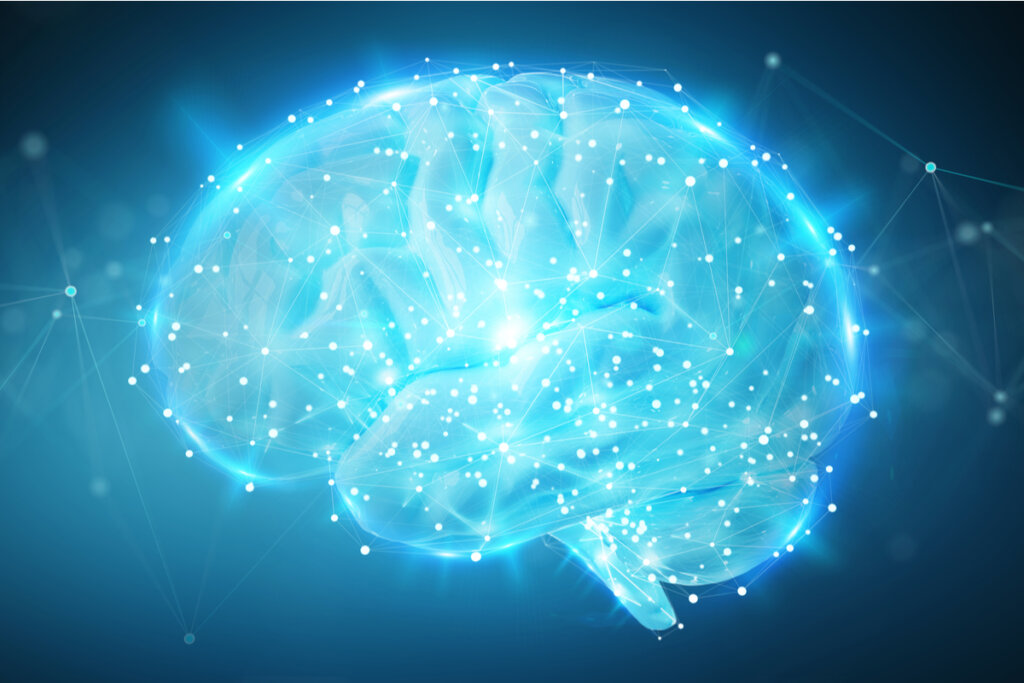Too Little Sleep Creates False Memories


Written and verified by the psychologist Valeria Sabater
“So that didn’t happen? You’re telling me that what I just said never really happened?…” Do you find yourself saying these kinds of things? Thinking that certain things have happened when they haven’t? If so, you need to know something. The fact that too little sleep creates false memories.
We all doubt our own memories at some time or another. For instance, sometimes, you might find yourself arguing with someone about certain things that you’re convinced actually happened. In fact, at times you might even wonder if you’re being “gaslighted” by friends and family. Indeed, in reality, there are few things more uncomfortable than being told “What are you talking about? That never happened at all!”
You might find yourself wondering if you’re losing your memory. However, if you’ve had these kinds of experiences, the best thing you can do is to have a think about your lifestyle. For example, stress can affect your memory in the same way as a lack of sleep can. In fact, you need to be fully aware of how sleep is one of your best friends for good brain health.
Let’s learn a little more about it.
The brain needs a sustained and uninterrupted rest throughout the night to consolidate the data that makes up your memory. Indeed, sleeping in the daytime isn’t as beneficial as you may think.

Beware… too little sleep creates false memories
When you remember a situation from a recent or distant past event, you don’t evoke it as if you’re looking at a photo from a photo album. That’s because your memory isn’t 100 percent perfect. In most cases, you tend to interpret only little details. Nevertheless, these kinds of interpretations don’t alter the meaning and significance of that memory.
Say, for example, that your car has broken down and you want to take it to the same workshop that your brother uses. You know more or less what street it’s on because you once went there with him, but you don’t remember the name of the street or the number. However, this memory is still functional: it allows you to act in the face of a specific need.
If you suffer from insomnia, you’ll always have difficulties when it comes to retrieving specific data or information. In this particular scenario, for instance, you might think that the workshop was recommended to you by a co-worker and not your brother. You’re therefore resorting to false memory.
Why does this happen? What causes these mentally draining events?
The brain and night rest
In 2016, Duke University conducted an interesting study regarding sleep and false memory. The study highlighted that, in many countries, adolescents sleep less than the 8-10 hours recommended for their age. This impacts their academic performance.
However, this impact is greater as you get older. As a matter of fact, your brain requiress you to sleep an average of 7 or 8 hours in order to carry out data storage, management, and restoration tasks. Therefore, if you don’t reach the REM phase of sleep, many of these functions aren’t carried out effectively.
In other words, a proper night’s sleep gives you the perfect neurobiological conditions for the correct consolidation of both short and long-term memories. Getting too little sleep impairs your retrieval of them.
The consequence of this breakdown is evident. Faced with the need to evoke your past experiences, your brain has no choice but to invent them. That’s because your impulse will always be to “fill in the gaps.” In fact, the University of Lubeck (Germany) conducted a study in Germany which stated that people often confidently claim that events happened when they never really did.
Naps and the “matrix effect”
Since we know that getting too little sleep creates false memories, chances are that you might say to yourself, “since I don’t sleep at night, I’ll try to take naps in the middle of the afternoon.” However, this isn’t a good idea — certainly not as far as your memory is concerned. Indeed, researchers and experts in sleep hygiene have some interesting information on the subject.
They state that it’s true that sleeping for a short period of time after meals relaxes and promotes alertness. However, a problem arises when you sleep little during the night and take too long naps in the afternoon. This is when the so-called “matrix effect” appears.
Your nap generates sleep patterns that aren’t particularly suitable for fixing new memories. That’s because your brain works during these states in bursts, and, instead of storing data in long-term memory, it transforms it. In fact, it creates false memories by distorting lived experiences.
While it’s true that naps can contribute to physical rest, the reality is that they don’t contribute to taking care of your memory or consolidating new memories.

The importance of sleeping at night
Sleep deprivation has long been used as a torture device. Indeed, the effect it has on the brain is immense. Not only do memory failures occur, but hallucinations can also happen. Therefore, it’s essential to take care of your sleep routine. Always remember the following:
- The brain needs you to sleep at night between 7 and 8 hours in a more or less sustained way. Sleeping during the day is of no value. Nor are frequent awakenings healthy.
If you find you’ve been suffering from insomnia for several weeks, don’t hesitate to ask for expert help. Because your physical and psychological health depends on a good night’s sleep.
“So that didn’t happen? You’re telling me that what I just said never really happened?…” Do you find yourself saying these kinds of things? Thinking that certain things have happened when they haven’t? If so, you need to know something. The fact that too little sleep creates false memories.
We all doubt our own memories at some time or another. For instance, sometimes, you might find yourself arguing with someone about certain things that you’re convinced actually happened. In fact, at times you might even wonder if you’re being “gaslighted” by friends and family. Indeed, in reality, there are few things more uncomfortable than being told “What are you talking about? That never happened at all!”
You might find yourself wondering if you’re losing your memory. However, if you’ve had these kinds of experiences, the best thing you can do is to have a think about your lifestyle. For example, stress can affect your memory in the same way as a lack of sleep can. In fact, you need to be fully aware of how sleep is one of your best friends for good brain health.
Let’s learn a little more about it.
The brain needs a sustained and uninterrupted rest throughout the night to consolidate the data that makes up your memory. Indeed, sleeping in the daytime isn’t as beneficial as you may think.

Beware… too little sleep creates false memories
When you remember a situation from a recent or distant past event, you don’t evoke it as if you’re looking at a photo from a photo album. That’s because your memory isn’t 100 percent perfect. In most cases, you tend to interpret only little details. Nevertheless, these kinds of interpretations don’t alter the meaning and significance of that memory.
Say, for example, that your car has broken down and you want to take it to the same workshop that your brother uses. You know more or less what street it’s on because you once went there with him, but you don’t remember the name of the street or the number. However, this memory is still functional: it allows you to act in the face of a specific need.
If you suffer from insomnia, you’ll always have difficulties when it comes to retrieving specific data or information. In this particular scenario, for instance, you might think that the workshop was recommended to you by a co-worker and not your brother. You’re therefore resorting to false memory.
Why does this happen? What causes these mentally draining events?
The brain and night rest
In 2016, Duke University conducted an interesting study regarding sleep and false memory. The study highlighted that, in many countries, adolescents sleep less than the 8-10 hours recommended for their age. This impacts their academic performance.
However, this impact is greater as you get older. As a matter of fact, your brain requiress you to sleep an average of 7 or 8 hours in order to carry out data storage, management, and restoration tasks. Therefore, if you don’t reach the REM phase of sleep, many of these functions aren’t carried out effectively.
In other words, a proper night’s sleep gives you the perfect neurobiological conditions for the correct consolidation of both short and long-term memories. Getting too little sleep impairs your retrieval of them.
The consequence of this breakdown is evident. Faced with the need to evoke your past experiences, your brain has no choice but to invent them. That’s because your impulse will always be to “fill in the gaps.” In fact, the University of Lubeck (Germany) conducted a study in Germany which stated that people often confidently claim that events happened when they never really did.
Naps and the “matrix effect”
Since we know that getting too little sleep creates false memories, chances are that you might say to yourself, “since I don’t sleep at night, I’ll try to take naps in the middle of the afternoon.” However, this isn’t a good idea — certainly not as far as your memory is concerned. Indeed, researchers and experts in sleep hygiene have some interesting information on the subject.
They state that it’s true that sleeping for a short period of time after meals relaxes and promotes alertness. However, a problem arises when you sleep little during the night and take too long naps in the afternoon. This is when the so-called “matrix effect” appears.
Your nap generates sleep patterns that aren’t particularly suitable for fixing new memories. That’s because your brain works during these states in bursts, and, instead of storing data in long-term memory, it transforms it. In fact, it creates false memories by distorting lived experiences.
While it’s true that naps can contribute to physical rest, the reality is that they don’t contribute to taking care of your memory or consolidating new memories.

The importance of sleeping at night
Sleep deprivation has long been used as a torture device. Indeed, the effect it has on the brain is immense. Not only do memory failures occur, but hallucinations can also happen. Therefore, it’s essential to take care of your sleep routine. Always remember the following:
- The brain needs you to sleep at night between 7 and 8 hours in a more or less sustained way. Sleeping during the day is of no value. Nor are frequent awakenings healthy.
If you find you’ve been suffering from insomnia for several weeks, don’t hesitate to ask for expert help. Because your physical and psychological health depends on a good night’s sleep.
All cited sources were thoroughly reviewed by our team to ensure their quality, reliability, currency, and validity. The bibliography of this article was considered reliable and of academic or scientific accuracy.
- Diekelmann S, Landolt HP, Lahl O, Born J, Wagner U (2008) Sleep Loss Produces False Memories. PLOS ONE 3(10): e3512. https://doi.org/10.1371/journal.pone.0003512
- Lo, J. C., Chong, P. L., Ganesan, S., Leong, R. L., & Chee, M. W. (2016). Sleep deprivation increases formation of false memory. Journal of sleep research, 25(6), 673–682. https://doi.org/10.1111/jsr.12436
This text is provided for informational purposes only and does not replace consultation with a professional. If in doubt, consult your specialist.







